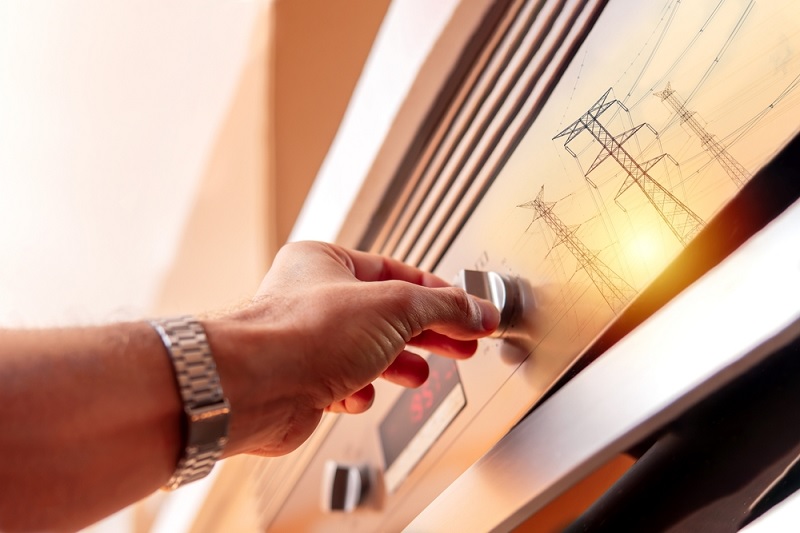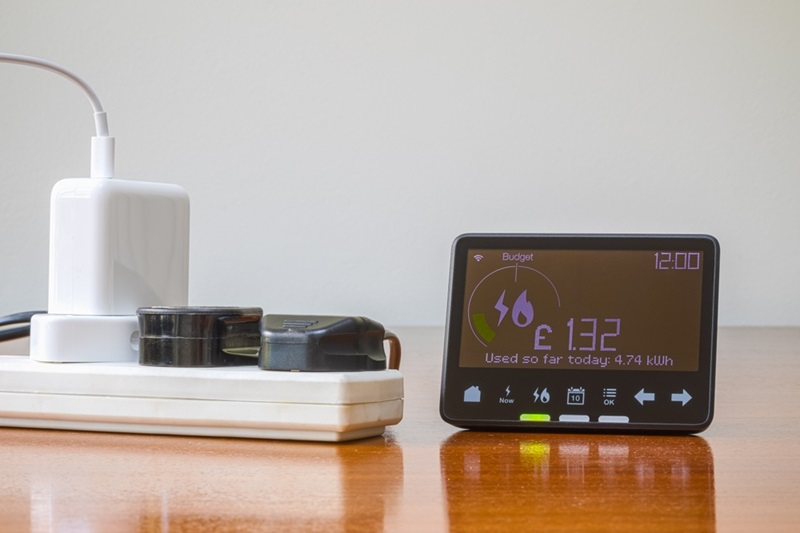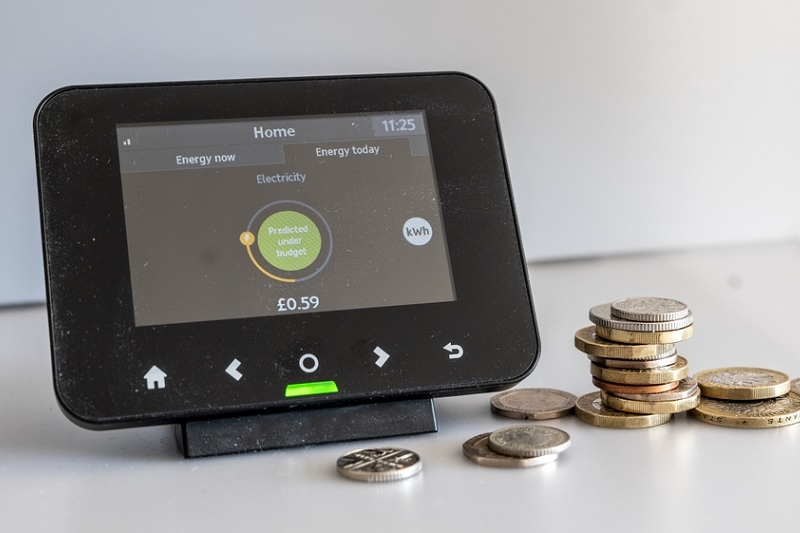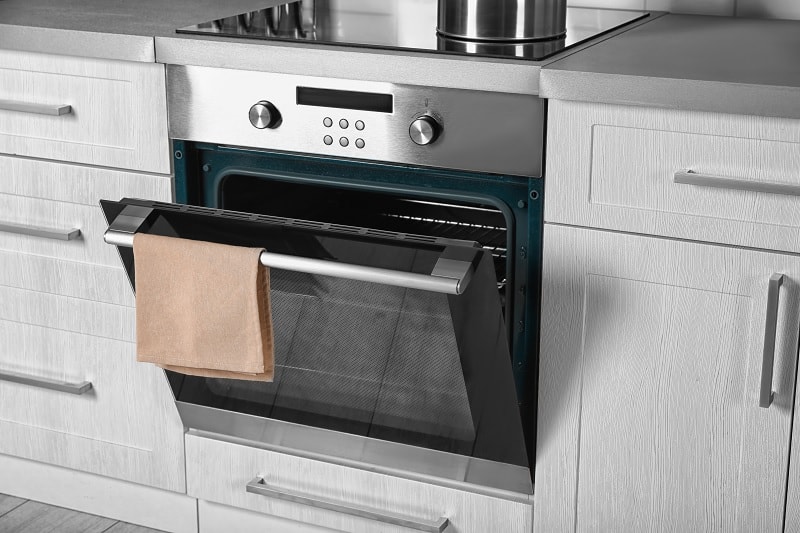Use our calculator tool below to work out how much your home appliances cost to run.
How to Calculate Energy Costs
Whilst you would need modern technology to calculate a 100% accurate figure for how much electricity an appliance uses, it is possible to calculate a good estimate using simple mathematics.
To calculate an estimated energy cost, you just need three figures:
- The first is the wattage of the appliance. This should be on the energy efficiency label if you’re looking at a new appliance, or you should be able to find it on an inconspicuous plate on the appliance itself, or, failing that, in the manufacturer’s guides.
- You’ll then need to know the average number of hours you use the appliance each day.
- Finally, you need to know the price you pay per kilowatt hour (kWh) of electricity. If you don’t know it, you should be able to find your rate per kWh on your energy bill.
Calculating the cost
Once you have the above figures, you’re ready to calculate the cost of running your appliance using our handy calculator.
Here’s how the calculator works.
First, it multiplies the device’s wattage by the number of hours your appliance is typically used each day.
Next, it divides that number by 1000. This converts watts to kWh, which is how you are billed.
Last, it multiplies this figure by the rate your electricity supplier charges you per kWh of electricity.
Example
As an example, if you have a 150W television that you use for five hours a day, this consumes 750 watts (150 x 5 = 750). You then need to divide 750 watts by 1000, to give 0.75 kWh.
Then multiply 0.75 x 27.03 pence (the current average electricity cost per kWh), giving you a running cost per day of 20 pence.
If you want to, you can then multiply this number by seven to give you the cost for a week, or 30 to give you an estimated cost for a month.
Current Energy Costs in the UK in 2025
According to Ofgem , the average household energy costs for the Energy Price Cap (EPC) period from 1 April to 30 June 2025 are:
- 27.03/kWh for electricity
- 6.99p/kWh for gas
Average kWh for Different Household Appliances
We used CompareTheMarket to find these figures.
Kettle
Energy usage: 0.11 kWh per use
The average kettle uses just 0.11 kWh of electricity to heat a single litre of water. Over the course of a year, most households will use their kettle around 1,542 times, giving an annual energy usage of 170 kWh.
Tumble dryer
Energy usage: 1.95 kWh per hour
How much a tumble dryer will cost you can vary greatly depending on the energy rating of the appliance. However, the typical condenser tumble dryer will use around 1.95 kWh of electricity per hour, and most households will use it two or three times a week.
Fridge freezer
Energy usage: 1.1 kWh per day
A typical, energy efficient fridge freezer that runs 24 hours a day will use 408kWh of electricity over the course of a year. On a daily basis, this is approximately 1.1 kWh.
Dishwasher
Energy usage: 0.91 kWh per cycle
The average 13-place dishwasher will use approximately 0.91 kWh of electricity per cycle.
Induction hob
Energy usage: 0.71 kWh per use
Induction hobs are easily one of the most used appliances in our kitchens at an average of 424 uses a year, and fortunately, a single use will only use an average of 0.71 kWh of electricity.

Electric oven
Energy usage: 1.56 kWh per use
Ovens are one of the more costly appliances to run, at approximately 1.56 kWh per typical use. The annual cost will vary depending on how frequently you use your oven and how long for, but on average, they are used 135 times a year.
What Affects the Running Costs of an Appliance?
There are a range of different factors that can influence how much an appliance will cost you to run, depending on the appliance in question.
Cleanliness and maintenance
One common reason an appliance will use more electricity than you expect is that it is not clean or has been poorly maintained.
This is especially true with appliances that have heating or cooling elements. If the element is dirty or poorly maintained, the appliance will need to use more power to achieve the same output.
Both of these potential problems become more common as appliances age. The older the appliance the more likely it is that components will start to struggle or that there will be a build-up of dirt and debris in all the nooks and crannies.
Airflow
Airflow is another common problem that can cause some appliances to run less efficiently. Poor airflow can lead to appliances overheating, which, in the case of appliances like fridges, will lead to them using more power to keep cool; and that’s on top of the extra wear and tear that the appliance will face.
Settings
The settings you use when you run your appliance will make a big difference too. If you run your washing machine or oven on a higher temperature, it will use more power. If you run it at a lower temperature or use an eco setting, you’ll use less energy.
How Can You Get a More Accurate Energy Calculation?
Whilst our calculator will give you a good indication of how much energy you are using, it will not be 100% accurate. This is because there are loads of variables that cannot be easily taken into account.
As an example, appliances will not use the maximum amount of power all the time.
Many appliances, such as ovens, will instead use the maximum amount of energy whilst they heat up, and then the usage will drop down whilst the temperature is just being maintained.
In addition to this, the ambient temperature, weather conditions, the appliance’s condition and so many more factors can impact the running cost, making the use of a simple formula inaccurate.
Home energy usage monitors
The best way to get an accurate energy reading for your entire home is to use an energy monitor.
These can be standalone, or you may be offered one if you have a smart meter installed. The display should give you a live view of how much energy your home is using at any given time.
These monitors will be able to give you a running tally of how much your energy is costing you, but it can be tricky to determine how much is due to a specific appliance.
If you want to be really specific, you’ll need a monitor that does recognise individual appliances, or, a dedicated appliance monitor.

Appliance energy monitors
Appliance monitors are the gold standard in tracking how much energy an appliance truly is using.
Many of these monitors simply plug into the wall socket and then you can plug the appliance into the monitor. This gives you an accurate, live reading of how much an appliance is using whilst it is on or on standby.
Smart plugs
As an alternative to a traditional, clunky plug-in energy monitor, you could always use a smart plug.
Most smart plugs will be able to give you a reading of how much energy an appliance has used over the course of time.
However, it is worth remembering that this method only works for small appliances like blenders or TVs, and does not work for bigger appliances such as fridges or ovens.

Chef’s Pick is your guide to the best kitchen equipment and appliances in the UK.
We help you understand the confusing world of cookers, ovens and cookware so you can get the most out of your kitchen.





